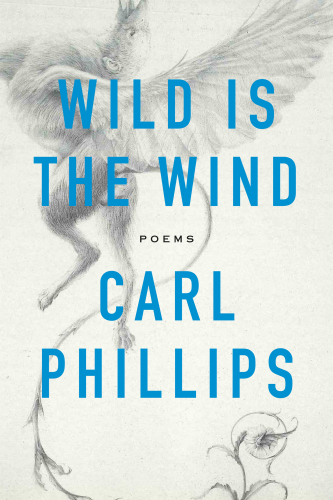
Wild Is the Wind
Poems
کتاب های مرتبط
- اطلاعات
- نقد و بررسی
- دیدگاه کاربران
نقد و بررسی

September 15, 2017
In recent collections, two-time National Book Award finalist Phillips (Renaissance) has been preoccupied with the weight of the past, but here he surpasses melancholy to present moments of crucial rethinking. "I've pretty much/ been wrong," he says, and calmly, too, as he scans what has unfolded. Throughout, Phillips balances on the knife's edge of regret but doesn't cut himself, acknowledging that "accepting our position, and understanding it/ still mattered, but not like remembering what/ the point had been." It's just that grasping that point can be tricky. Memory is a "mirage of history" and history itself something that runs over us roughshod and obdurate. "What hasn't been damaged?" the poet reflects at one point, elsewhere observing, "The sea was one thing once; the field another. Either way, something got crossed, or didn't." Can we distinguish between what's happened and how it's recalled, between what's joyously starlike and merely bald-fact star? Does it all come to nothing (so different from "not knowing exactly what it's come to")? Registering these distinctions in life takes the same rapt attention that Phillips's compact, cerebral poems require, so that we can find all his gemlike observations. VERDICT Highly recommended.--Barbara Hoffert, Library Journal
Copyright 2017 Library Journal, LLC Used with permission.

Starred review from November 20, 2017
Phillips (Reconnaissance) hazards a visit to an emotional territory reminiscent of Dickinson’s “wild nights” in his 14th collection, in which he faces the unavoidable question: “Don’t you want to find happiness?” These 35 poems are as haunting and contemplative as the torch song for which the collection is named, and the work coheres through images of the sea and navigation, compasses and charts. The possibility of love is a risk taken under the “bright points of a constellation missed earlier,/ and just now seen clearly: pain; indifference;/ torn trust; permission.” The explorer must to “say no to despair.” The nautical conceit merges seamlessly with Phillips’s more familiar metaphorical terrain of earth and sky (“leaves swam the air”). He startles readers afresh with his talent for transcendent metaphor leavened by rueful humor—“The oars of the ship called Late Forgiveness lift,/ then fall. The slaves at the oars/ have done singing—it’s pure work, now”—and displays a well-honed ability to draw on varied literary sources in a register that’s both academic and vernacular. As ever in his work, emotional dynamics resist easy resolution and the speakers unsparingly evaluate both the self and exterior world. Skillfully balancing philosophical discourse and linguistic pleasure, Phillips’s much-admired capacity for nimble syntax unfurls like a sail, “each time, more surely.”

























دیدگاه کاربران